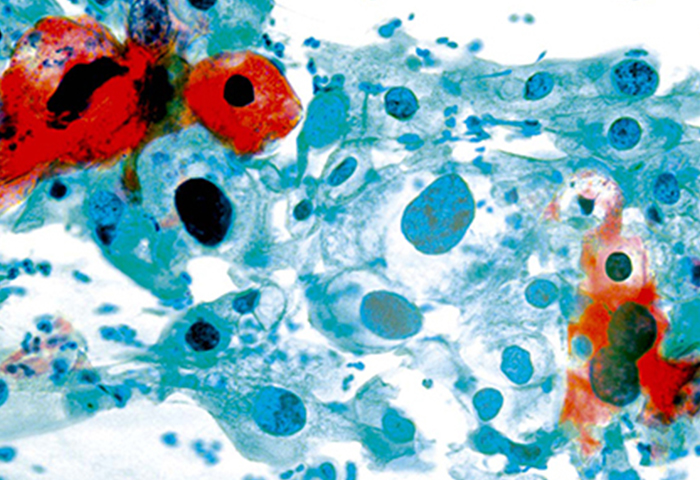Cytopathology is a diagnostic technique that examines cells from various body sites to determine the cause or the nature of the disease. The first cytopathology test developed was the Pap test which has been widely utilized in the last 50 years for screening and diagnosing cervical cancer and its precursors. Cytopathology is generally used on samples of free cells or tissue fragments, in contrast to histopathology, which studies whole tissues. Cytopathology is frequently, less precisely, called "cytology", which means "the study of cells". Cytopathology is commonly used to investigate diseases involving a wide range of body sites, often to aid in the diagnosis of cancer but also in the diagnosis of some infectious diseases and other inflammatory conditions.
Cell samples may be gathered during routine diagnostic tests, such as bronchoscopy and cystoscopy. Specific tests, such as the Papanicolaou test, also known as the Pap test or fine-needle aspiration, can be used to gather cells from specific sites for diagnosis. Analysis of cell samples is often a rapid process but requires specialist training to correctly identify cells that pose a potential danger to a patient, such as pre-cancerous, cancerous, or infected cells. This is the job of a trained cytopathologist; a medical doctor who has undergone additional training to correctly review and interpret the results from cytopathology tests.





